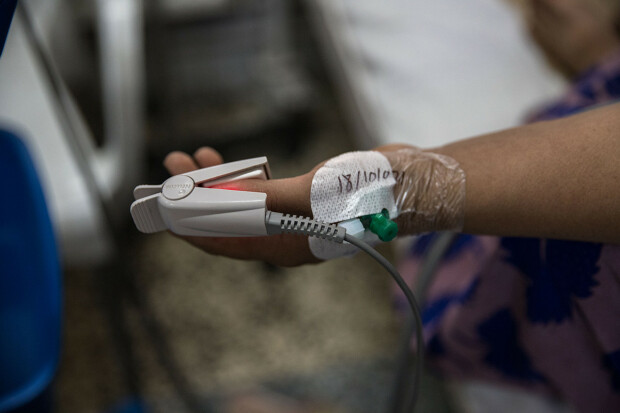
Séverine 5: The thin line between hope and despair
The thin line between hope and despair
(31 December 2017)
I arrived in a cold and snowy Kabul. The sight of the mountains continues to leave me in awe. Under different circumstances, tourism could flourish here, and 40 years ago, hippies travelled through Afghanistan to India. But now, after 16 years of very costly (both in terms of war expenses and lives lost) American presence without any noticeable results, that is no longer a possibility. The conflict seems endless and absolute.
Khost is situated at an elevation of 800 meters and is warmer than Kabul. The temperatures during the day are quite pleasant, but at night, they hover around freezing point. So leaving your warm bed for a night time delivery is anything but easy.
The most significant event of the past few days was the birth of quintuplets. Four out of the five babies are alive. They weigh between 1.1 and 1.4 kg and are doing relatively well. However, the mother already has two children and has been in the hospital for three weeks. She finds it difficult to stay any longer and wants to take the four little ones home now. We have moved heaven and earth to persuade her to stay. For now, she is listening. Letting four tiny newborns brave the Afghan winter on their way home is really not a good idea.
The mother thought she was pregnant with triplets because she had an ultrasound somewhere that showed three babies. Today, five came out. That is the life in Khost... We often deal with multiple births because there is immense pressure from families and husbands for women to get pregnant quickly. Fertility pills are readily available, especially here on the border with Pakistan. You can find everything in the local market, and many people take them without any medical guidance.
Another little one in the neonatology department weighs 1.3 kg. He is a boy born two days ago, and his mother, Sima, 17 years old, had eclampsia with seizures during pregnancy. In Belgium, this condition is rare, but here, it happens weekly. The mother is fortunately doing well now (although this condition has a 5-10% chance of fatality). The little one is our "eclampsia survivor" and is doing relatively well for the time being. Mothers and families are often more motivated for a boy. It is heart-wrenching for us, but the gender of the child is a factor here that determines a child's chances of survival.
In the past two weeks, we have also had to remove two uteruses after delivery, one due to uncontrollable bleeding and the other due to a uterine rupture. Both mothers survived and already had seven and nine living children, so it wasn't too catastrophic for them (you become very pragmatic about these things here). One of them received four units of blood and caused us some stress, but today she left with a big smile. Phew.
The biggest medical problem we currently have in the ward is a 20-year-old who gave birth to a stillborn baby at six months, five days ago. She also had eclampsia. She was born with a congenital anomaly where her bladder is exposed without any skin covering, and she has a congenital fistula, which makes her permanently incontinent. Her uterus is likely abnormal as well, which is why the baby was born and died at six months. It makes you wonder how she could ever get pregnant. Her kidneys are also barely functioning. In the first few days, we still had hope that it was due to eclampsia, but her condition is not improving (her creatinine is 5.7, medical colleagues). On the ultrasound, one kidney seems to have completely stopped functioning, while the other appears relatively normal. In Kabul, there is a hospital supported with foreign funds where they perform fistula surgeries. We have contacted them, and she will go there for further examination, and possibly surgery. But I believe this young woman has a condition that is too complex for this country’s healthcare system, and she won't live long...
Fortunately, we can draw strength from our close-knit team. There are 14 of us from nine different nationalities. Italian nurse Elena makes pasta and brioches herself. It's now 31 December, and tonight we are going to have a good meal—especially because someone (don't ask me how) managed to transport four kilograms of frozen scampi with an ice pack from Kabul to Khost.
Séverine